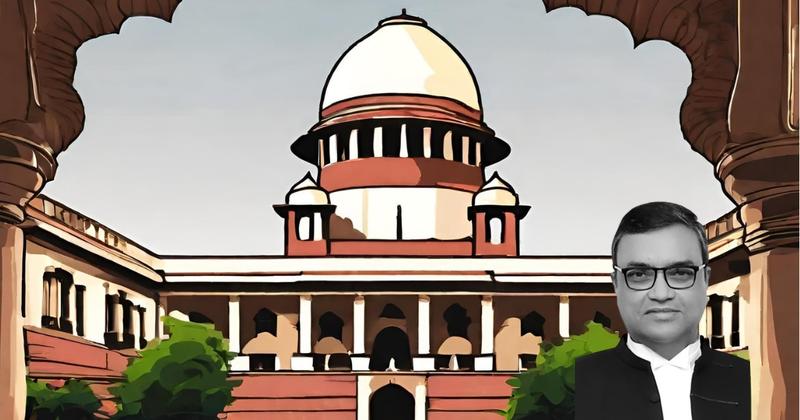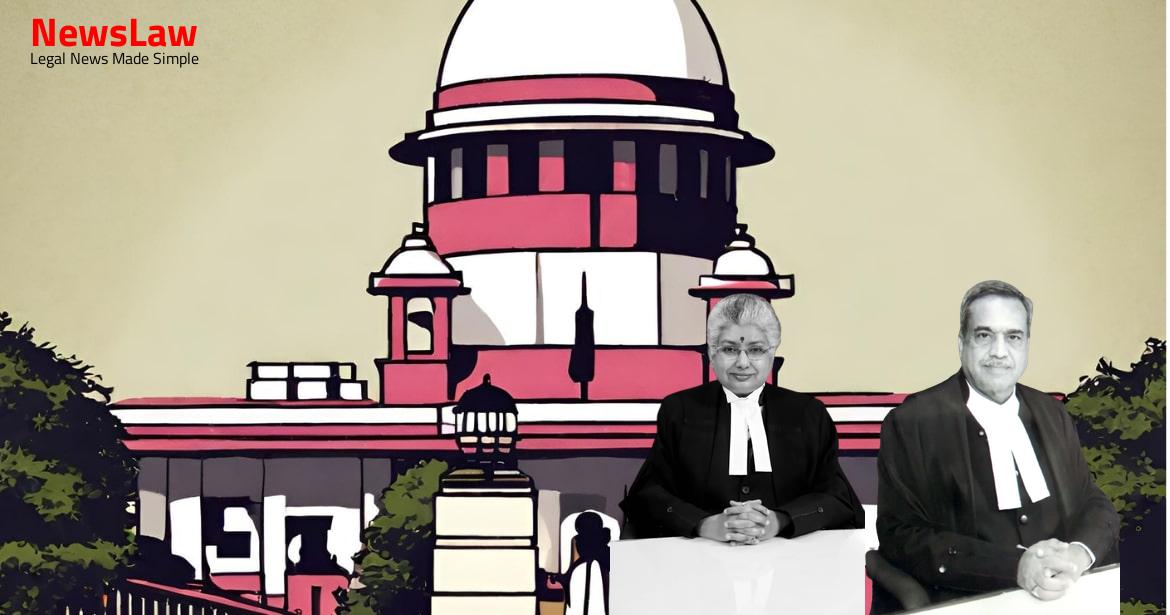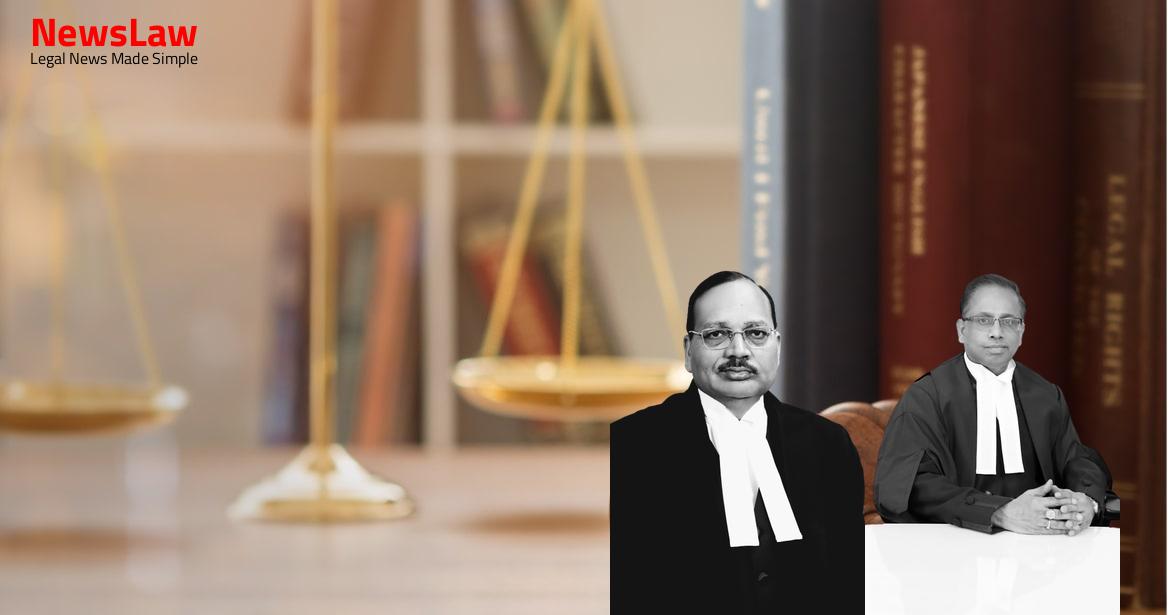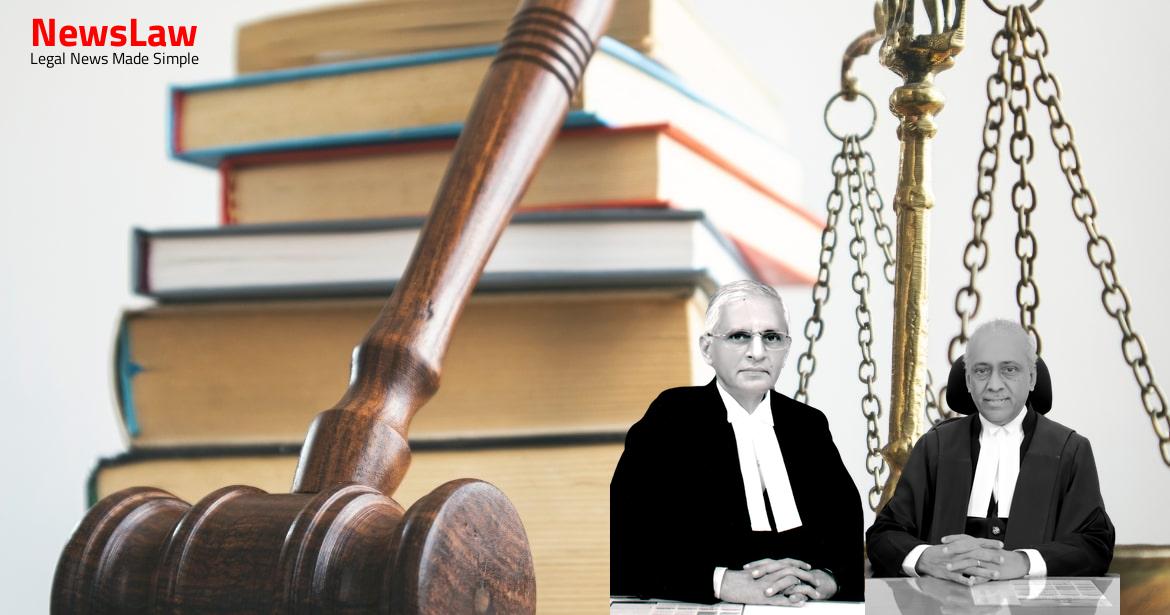The present case is no different from the others and it is considered appropriate to remind the high courts and the sessions courts not to be unduly swayed by submissions advanced by counsel on behalf of the accused in the nature of undertakings to keep in deposit/repay any amount while seeking bail under section 438 of the Cr.
In terms of the agreement dated 19 December, 2018, the builder was required to construct a multi-storied building in which the appellant would have ownership rights in respect of the 3 floor and the upper floor, apart from Rs.55,00,000/- (Rupees fifty- five lakh) to be paid to him by the builder, whereas the builder would have rights to deal with the 1 and the 2 floors together with other rights as described therein. 10,00,000/- (Rupees ten lakh) as earnest money], at the time of execution of the agreement dated 14 December, 2018. Allegedly, the complainants failed to comply with the terms and conditions of the agreement dated 14 December, 2018 triggering institution of a civil suit by the builder against the complainants seeking cancellation of such agreement and forfeiture of the amount of Rs. Since the complainants had effected payment of substantial amount of money to the appellant and the builder having failed to deliver possession of the second floor of the proposed building, the complainants felt cheated and urged the police to investigate the crime committed inter alia by the appellant and the builder.
Initially, on 30 November, 2011, the Presiding Officer granted interim protection from arrest to the appellant, subject to his cooperating with the investigating agency, upon being informed by the investigating officer that no agreement was executed by and between the appellant and the complainants. 13 lacs within 8 weeks and owner Ramesh Kumar is ready to deposit a sum of Rs.
According to counsel for the appellant, the condition imposed is onerous and is not called for having regard to the satisfaction recorded by the High Court in paragraph 8.0. Finally, it has been contended on behalf of the appellant that having regard to the decision of this Court in Munish Bhasin vs State (NCT of Delhi), the impugned condition imposed for grant of bail requiring deposit of Rs.22,00,000/- (Rupees twenty-two lakh) in the form of FDR in the Trial Court is bad in law and liable to be set aside.
From such status report, it is therefore clear that neither was the floor which the complainants intended to purchase is complete nor the floors in respect whereof the appellant could exercise his rights were in existence. 22,00,000/-
Also Read: https://newslaw.in/supreme-court/appellant-convicted-for-culpable-homicide-not-amounting-to-murder/
(Rupees twenty-two lakh) with the trial court, the FIR version is that the appellant had received separate cheques in his name for a total amount of Rs.17,00,000/- (Rupees seventeen lakh) [Rs.
We are not concerned at this stage with alleged payments made by the complainants to the builder. Section 438 is a procedural provision which is concerned with the personal liberty of the individual, who is entitled to the benefit of the presumption of innocence since he is not, on the date of his application for anticipatory bail, convicted of the offence in respect of which he seeks bail.
As a condition for grant of anticipatory bail, the High Court has recorded the undertaking of the petitioners to pay the victim daughter-in-law a sum of Rs 2000 per month and failure to do so would result in vacation of the order granting bail. While imposing conditions on an accused who approaches the court under Section 438 of the Code, the court should be extremely chary in imposing conditions and should not transgress (2006) 6 SCC 196 its jurisdiction or power by imposing the conditions which are not called for at all.
In a proceeding under Section 438 of the Code, the Court would not be justified in awarding maintenance to the wife and child.” Sumit Mehta vs State (NCT of Delhi) arises out of a decision of the High Court granting anticipatory bail but inter alia on the condition that the appellant, accused of commission of offences punishable under sections 420/467/468/471 of the IPC, deposits an amount of Rs.1,00,00,000/- (Rupees one crore) in fixed deposit in the name of the complainant. The only point for consideration in this appeal is whether the condition of depositing an amount of Rs 1,00,00,000 in fixed deposit for anticipatory bail is sustainable in law and whether such condition is outside the purview of Section 438 of the Code?” After hearing the parties, this Court made the following pertinent observations: “11. We also clarify that while granting anticipatory bail, the courts are expected to consider and keep in mind the nature and gravity of accusation, antecedents of the applicant, namely, about his previous involvement in such offence and the possibility of the applicant to flee justice. The words ‘any condition’ used in the provision should not be regarded as conferring absolute power on a court of law to impose any condition that it chooses to impose. The factors to be taken into consideration, while considering an application for bail are the nature of accusation and the severity of the punishment in the case of conviction and the nature of the materials relied upon by the prosecution; reasonable apprehension of tampering with the witnesses or apprehension of threat to the complainant or the witnesses; reasonable possibility of securing the presence of the accused at the time of trial or the likelihood of his abscondence; character, behaviour and standing of the accused; and the circumstances which are peculiar or the accused and larger interest of the public or the State and similar other considerations. We have indicated on more than one occasion that the process of criminal law, particularly in matters of grant of bail, is not akin to money recovery proceedings but what has been noticed in the present case carries the peculiarities of its own.
Putting it in other words, in a given case, the concession of pre-arrest bail or regular bail could be declined even if the accused has made payment of the money involved or offers to make any payment; (2021) 2 SCC 779 (2023) SCC OnLine SC 51 conversely, in a given case, the concession of pre-arrest bail or regular bail could be granted irrespective of any payment or any offer of payment. PC does empower the high court or the court of sessions to impose such conditions while making a direction under sub-section (1) as it may think fit in the light of the facts of the particular case and such direction may include the conditions as in clauses (i) to (iv) thereof. In exceptional cases such as where an allegation of misappropriation of public money by the accused is levelled and the accused while seeking indulgence of the court to have his liberty secured/restored volunteers to account for the whole or any part of the public money allegedly misappropriated by him, it would be open to the concerned court to consider whether in the larger public interest the money misappropriated should be allowed to be deposited before the application for anticipatory bail/bail is taken up for final consideration. Also, prima facie, there remains some doubt as regards the conduct of the appellant in receiving cheques from the complainants without there being any agreement inter se. The High Court would have been well-advised to examine whether the appellant was to be denied anticipatory bail on his failure to satisfy any of such tests. We are not unmindful of the fact that the High Court was led by the appellant himself to an order granting bail with imposition of the impugned condition; hence, we are inclined to remit the matter to the High Court in line with the approach adopted by this Court in Mahesh Chandra (supra) and direct re-consideration of the application for pre- arrest bail and a decision on its own merits in the light of the observations made herein, as early as possible but preferably within 31 August, 2023. Till such time further orders are passed by the High Court, the appellant’s liberty shall not be infringed by the investigating officer. RAVINDRA BHAT)……………………..J (DIPANKAR DATTA)
Also Read: https://newslaw.in/supreme-court/ownership-dispute-commissioners-order-and-revenue-documents/
NEW DELHI; JULY 04, 2023.
Case Title: RAMESH KUMAR Vs. THE STATE OF NCT OF DELHI (2023 INSC 596)
Case Number: Crl.A. No.-001741-001741 / 2023



